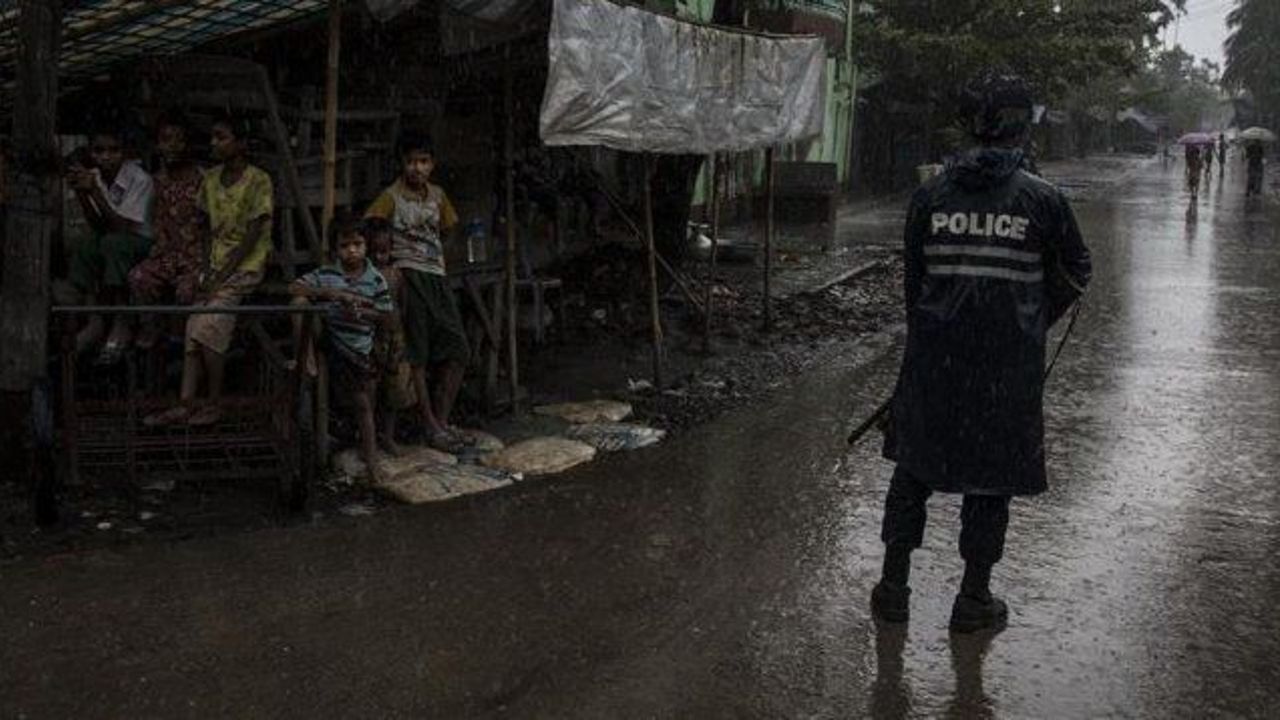UN urges Myanmar army to cease using excessive force
The United Nations has urged Myanmar's military to avoid the use of excessive force in troubled Rakhine State in order to avoid the further loss of innocent lives as concerns continue to rise about the treatment of the area's Muslim Rohingya population.

A statement released late Thursday by the UN's Special Adviser to the Secretary-General on Myanmar, Vijay Nambiar, underlined that the UN is “seriously concerned” by the developing situation in Northern parts of Rakhine, in which anything between 74 and 400 Rohingya Muslims have recently died and around 30,000 have been displaced.
Since Oct. 9, soldiers have been accused of killing innocent Rohingya and other serious human rights violations -- including sexual assaults -- during clearance operations after armed men attacked three police stations in Rakhine’s Maungdaw district near the country’s western border with Bangladesh.
“The UN has called on the security forces to act in accordance with the rule of law and accepted international norms of conduct, and to exercise caution in avoiding disproportionate responses that could cause violence to civilians, loss of innocent lives, or damage the properties of the local population,” said Nambiar.
“In the present situation, I feel that, while taking the necessary security measures to curb any fresh outbreak of attacks by criminal elements in the region, the authorities in Myanmar must also take steps to build confidence and reassurance among the local population that their security, dignity and well-being will be protected."
On Tuesday, former UN chief Kofi Annan -- chair of a commission to help the government resolve conflicts in Rakhine -- also called on the military to respect civilian rights in the area following discussions with Myanmar leaders, including military Commander-in-Chief Senior Gen. Min Aung Hlaing.
“I had made clear to him that it is important for the military to do what they are doing in the area, but the civilians also have their rights,” Annan told a press conference after his second visit to Rakhine, one of the poorest parts of Myanmar, as commission chair.
“It is very clear that the military has two important roles, to protect the state and the interest of the state, as well a responsibility that security forces be careful in protecting the rights of the civilian population. That is extremely important.”
Both the UN and United States have joined activist and aid groups in raising concerns about reports of rapes and murder by soldiers, while satellite imagery released by Human Rights Watch shows at least three Muslim villages in Rakhine have been burned.
The military has denied the mounting charges, but there has been no independent verification as a military lockdown of the area since Oct. 9. has restricted access by human rights monitors and independent journalists.
In the statement, Nambiar called on State Counselor Aung San Suu Kyi to visit Maungdaw and Buthidaung Townships to see the ground situation for herself, and to reassure the civilian population it will be protected.
Suu Kyi visited the southern parts of Rakhine -- where Muslims outnumber the ethnic Rakhine population -- in October, 2015, but she has never visited northern parts predominately occupied by the stateless Rohingya community.
“I call upon Daw Aung San Suu Kyi to reflect on the situation and, as she has done on so many occasions, to listen to her 'inner voice' and speak directly to the people of Myanmar, asking them to rise above their ethnic, religious and other differences and to advance human dignity, harmony and mutual cooperation between all communities,” Nambiar said.
Rohingya advocacy groups claim around 400 Rohingya have been killed in military operations in Rakhine’s north since Oct. 9, while Myanmar says 91 people -- 17 soldiers and 74 alleged "attackers" (including four who reportedly died during interrogation) -- have been killed.
A law passed in Myanmar in 1982 denies Rohingya -- many of whom have lived in Myanmar for generations -- citizenship, making them stateless.
The law denies Rohingya rights to Myanmar nationality, removes their freedom of movement, access to education and services, and allows arbitrary confiscation of property.
Myanmar nationalists have since taken to referring to the Rohingya -- which the United Nations calls one of the most persecuted people in the world -- as Bengali, which suggests they are not Myanmar nationals but interlopers from neighboring Bangladesh.
Rohingya have fled Myanmar in droves for decades, with a new wave of migrations occurring since mid-2012 after communal violence broke out in Rakhine between ethnic Rakhine Buddhists and Rohingya.
Anadolu Agency







